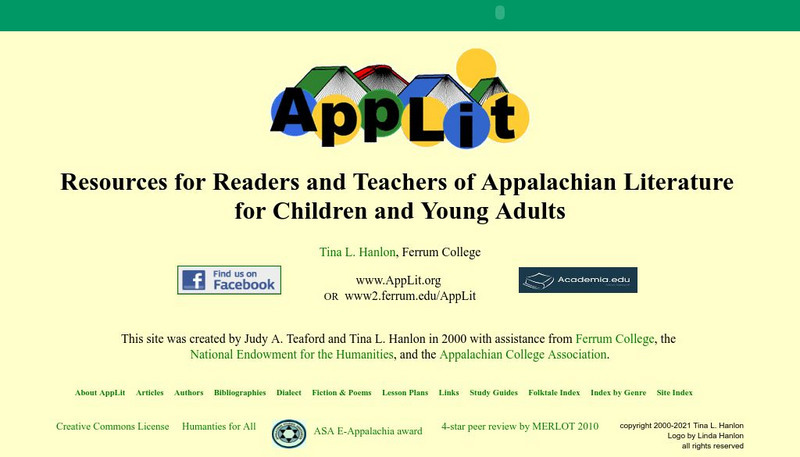Hi, what do you want to do?
Curated OER
Flavors Of The World
Young scholars engage in a simulation/role play. They analyze information about flavors and ingredients that create a unique flavor of a culture. They make recommendations to the executive chef on menu items appropriate for international...
Curated OER
The Diversity of Filipinos in the United States
ELLs are introduced to the experiences of Filipino immigrants to the United States. As a class, they discuss the various waves of immigration to the United States and state the reasons why they would leave the Philippines. They compare...
Curated OER
Let's Plan a Trip!
Take a virtual trip to see other countries and cultures! After learning about different cultures and populations, English learners think about a place they'd like to visit. Small groups or individuals plan a trip to a country...
Curated OER
Rights and Responsibilities: Grass Born to Be Stepped On
Students use the Internet and other resources to research an aspect of history that illustrates rights and responsibilities, including historical events, issues and ideas, and the people involved.
Curated OER
Many Cultures
Fourth graders study about several aspects of human culture, specifically those in California. They examine California's agriculture, industry, and economic changes; and cultural changes since 1850.
Curated OER
Greek Mythology: Cultures and Art
Students examine literary arts. In this Greek mythology lessons, students read Greek myths and select characters from the myths to study. Students create watercolor illustrations of the characters, write short stories about the...
Curated OER
You Can't Stop The Pop
Students reflect on the popular culture of their own country and explore the "Korean Wave" of popular culture in East Asia. They research the popular cultures of various countries around the world and present their findings in an...
Curated OER
Where Is Japan? How Are We Alike And Different?
First graders use literature, maps, and globes to explain how physical environments in various parts of the world are similar to and different from one's own, and that certain areas have common characteristics and can be called regions.
Curated OER
Armchair Travelers
Students consider how other countries and cultures influence furniture and home furnishings. They create a design plan for a particular room using the influences of a particular country.
Curated OER
Hungry for History
Students examine what their diets would be like without the inclusion of staple crops such as corn, wheat and sugar, and discover the value that chocolate had for the Mayan people. They create display boards for a food festival.
Curated OER
Teacher Lesson Plans: Africa
Learners explore Africa. In this cultural studies lesson, students go on safari, create African masks, or have an African party after they have researched the people, geography, and culture of the continent.
Curated OER
WOMEN IN ANTHROPOLOGY
Twelfth graders explore women (or men if they are underrepresented) who are leaders and achievers in the particular core content curriculum area. In this Anthropology lesson, 12th graders study the women who have distinguished...
Curated OER
Around the World, A Multicultural Unit
Students investigate Native American tribes through their stories. In this cultural lesson, students read stories of the Inuit tribe and discuss the themes, people, and customs. Students illustrate a picture of the Inuit...
Curated OER
My Place In Space
The purpose of this unit is for students to make the rich set of connections between astronomy and the rest of science and technology, language arts, cultural studies (social studies), math, art, and music.
Curated OER
Stocking Up For The Next Millennium
Look back on the inventions, concepts, cultural items, and literary contributions of the past one hundred years. Young historians will compose a presentation based on the research they do in favor of one thing that should withstand the...
Curated OER
Culture Universals Lesson Plan
Students perform research on specific cultures. They write a short paragraph on each of the universals and explain how each universal relates to their home culture.
Curated OER
Chris' Culture Club Cruise
Third graders ride the virtual highway on a field trip to museums, cultural centers, and exhibition spaces to discover exciting roles of public and private facilities.They follow various links on a cultural cruise of new knowledge and...
Curated OER
Exploring Cultural Symbols And National Identity In Japan
Students study Japanese cultural symbols and how they provide clues to national identity. They utilize the Internet to find information relating to their topics. They create Power Point presentations to share with the class.
Curated OER
Metalling in Around the World
Third graders explore the important leaders in different cultures by researching coinage. Through this process, they also recognize the cultural universality on coinage and currency.
Curated OER
Artifacts: What Am I?
Students practice simple Japanese expressions. They explore the information available from artifacts. Groups of students attempt to figure out other groups culture by examining a series of artifacts in a paper bag.
Annenberg Foundation
Annenberg Learner: Interactive Forum
Read two poems and follow the prompts to interpret them using four approaches: reader response, inquiry, cultural studies, and critical pedagogy. Use the prompts to guide personal reflection, launch a lesson with students, or join an...
Other
Applit: Resources for Appalachia Literature
Resources for readers and teachers of Appalachian literature for children and young adults that includes lesson plans, texts, bibliographies, and so on.
University of California
Ucla: Cultural Studies, and Multiculturalism
In the last third of this professor's article from UCLA dealing with how media culture helps to "forge our very identities," he considers MTV as a way of making cultural studies "multiperspectival" and therefore more varied and valid.
Other
Where There Be Dragons: Learning Adventures Abroad
This site offers students and adults learning opportunities through off the beaten path, small group expeditions to counties in Asia, Central America and South America. Trips are rugged,, creative and engaging journeys that combine...




























